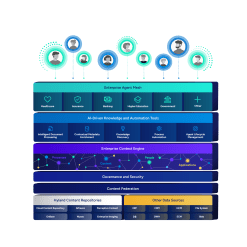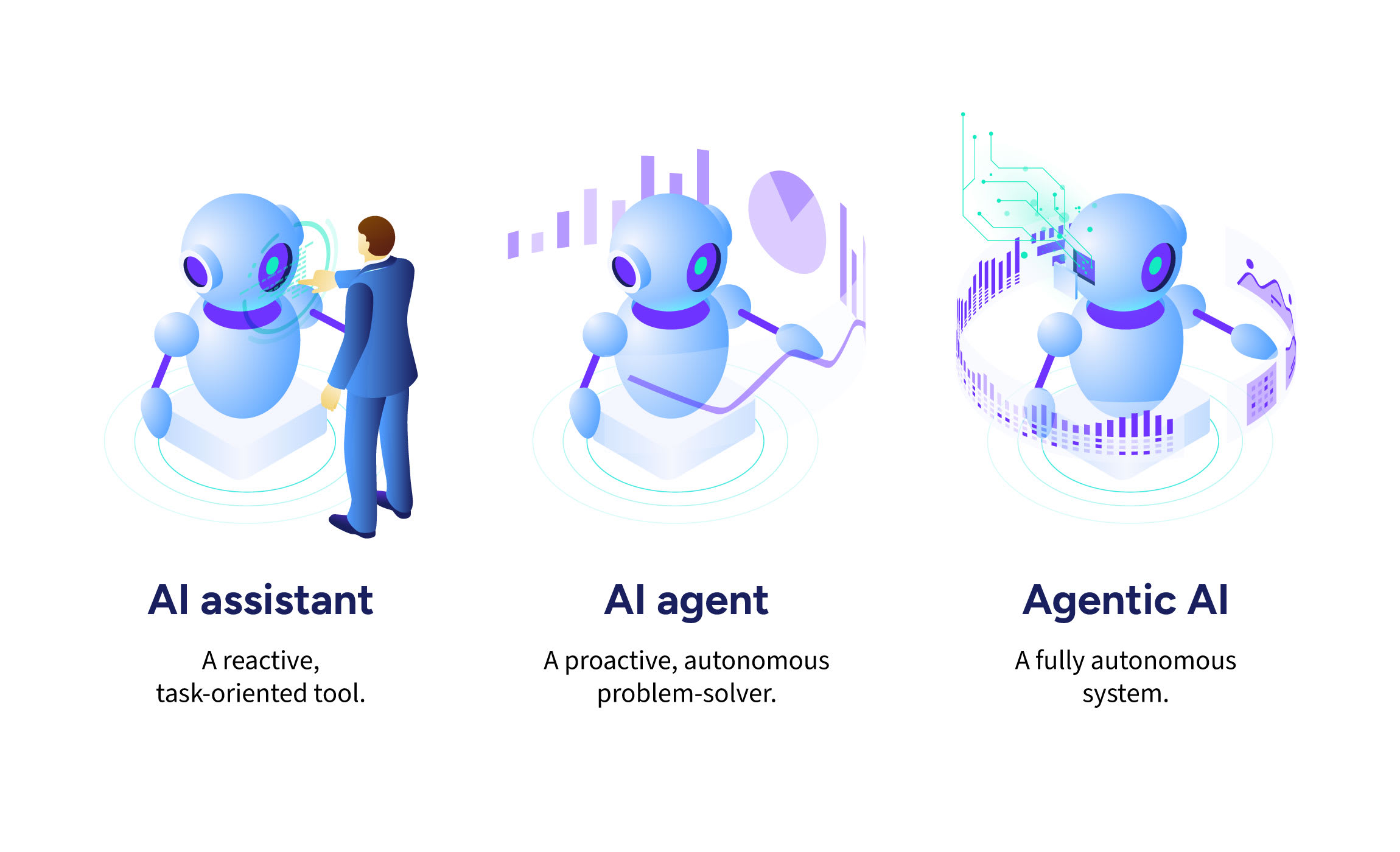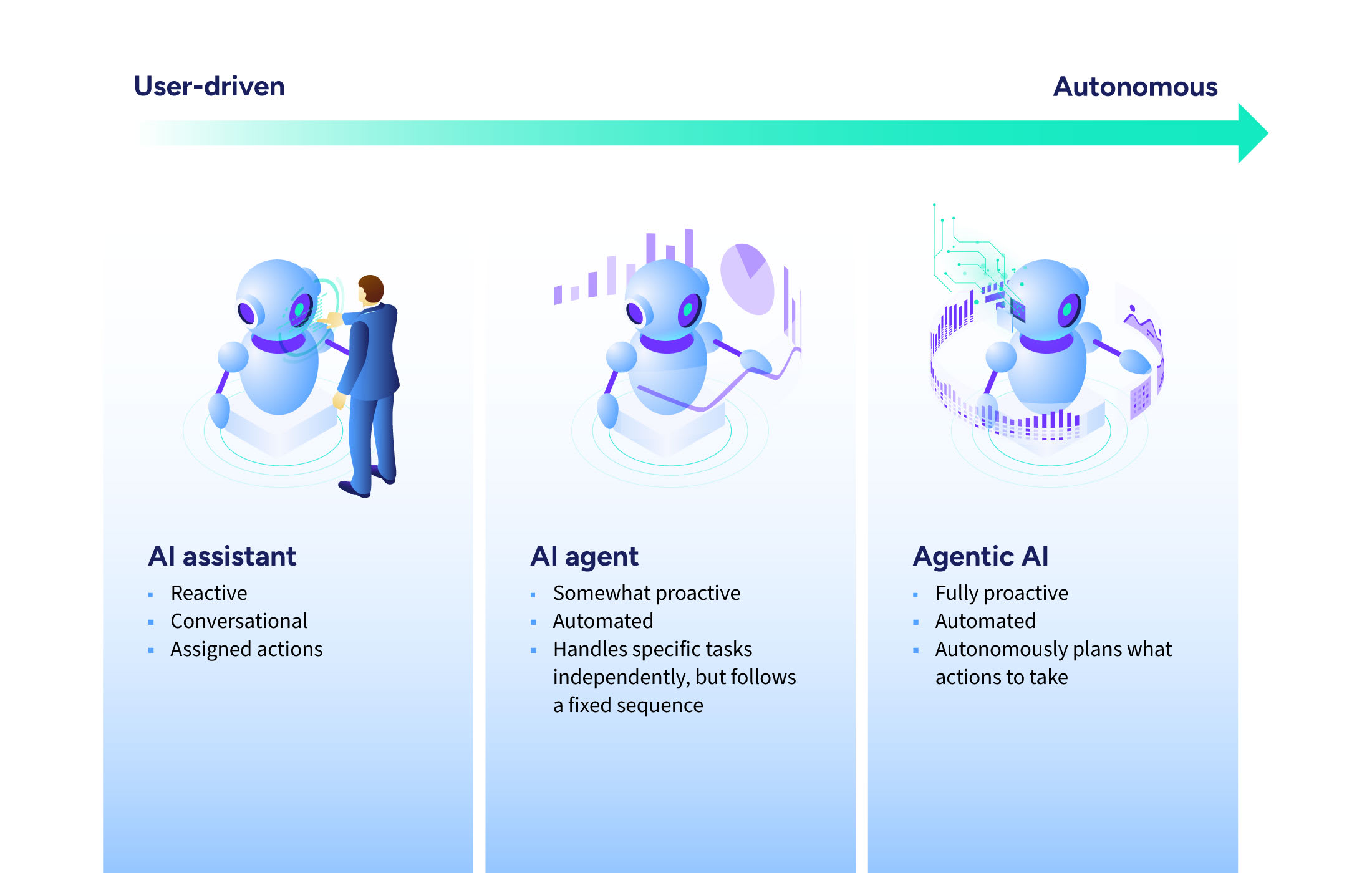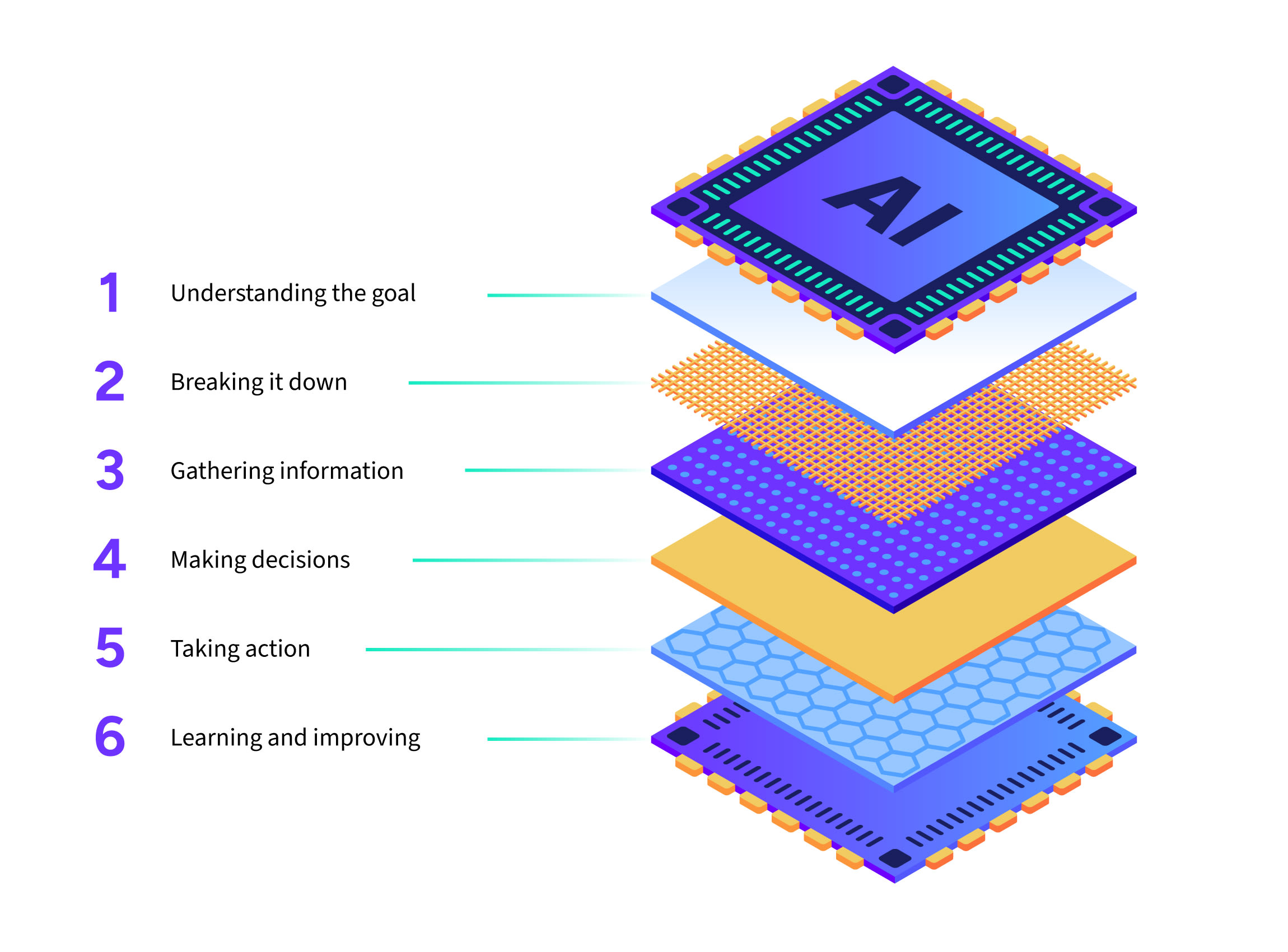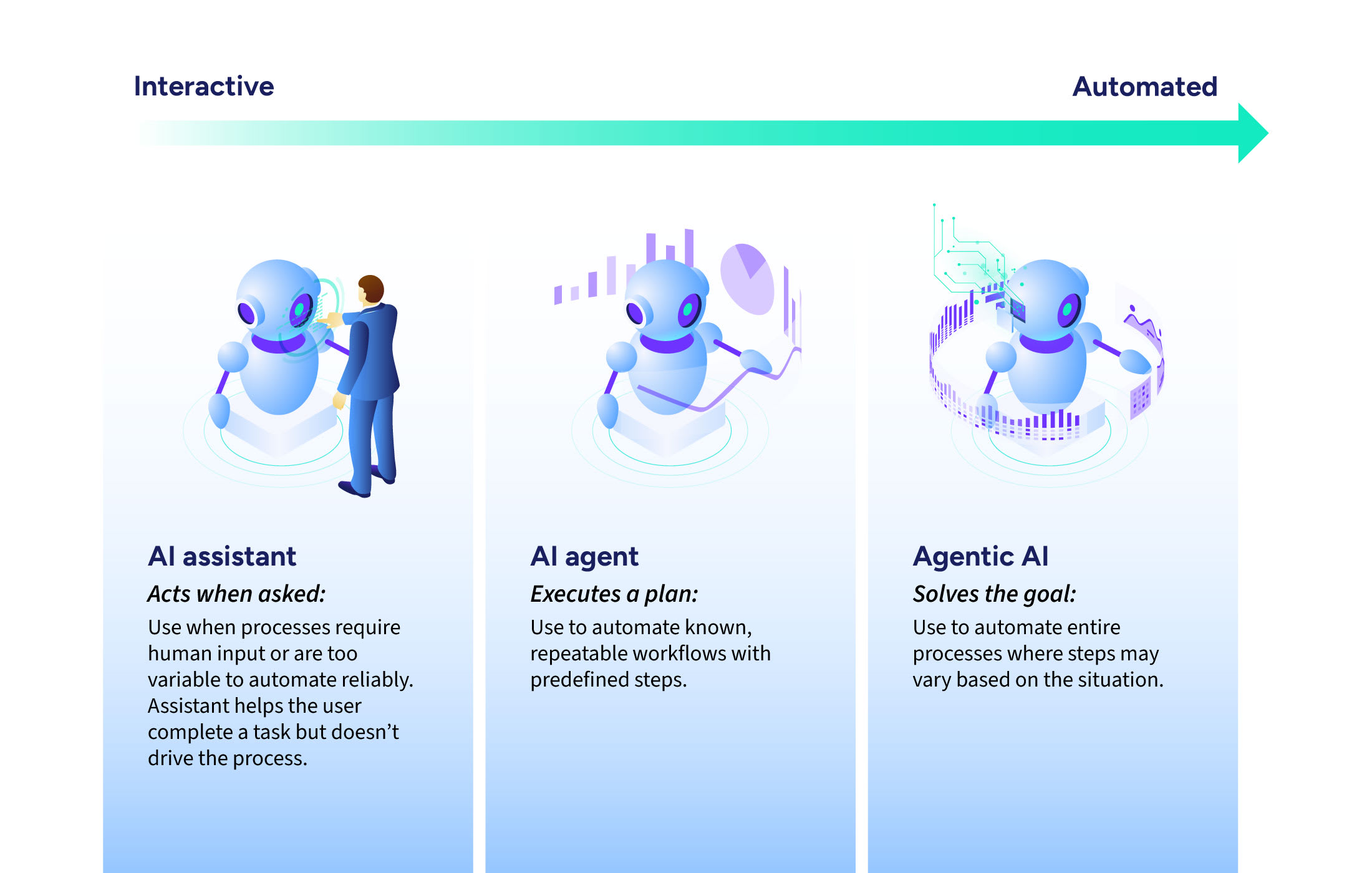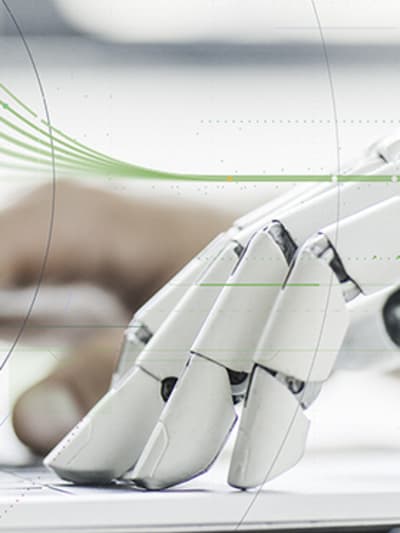AI agents are proactive systems that take charge of tasks with minimal user intervention. They analyze objectives, break them into actionable components, and execute independently. Equipped with advanced features like task chaining, persistent memory, and contextual decision-making, agents adapt and learn over time to improve performance.
For example, in banking, an AI agent tasked with fraud detection might independently monitor transactions, identify unusual patterns, and make targeted recommendations to reduce risk without requiring ongoing input from a human operator.
> Learn more | From tellers to terabytes: The digital makeover of modern banking
The Agentic AI approach
Agentic AI operates as a fully autonomous system capable of achieving goals with minimal to no human intervention. It doesn’t rely on predefined instructions or rigid workflows. Agentic AI dynamically analyzes a task, determines the necessary steps, and selects the appropriate tools to execute those steps in the optimal sequence.
For example, in autonomous inventory management, agentic AI can:
- monitor stock levels
- predict future demand based on historical data
- place orders with suppliers
- adjust restocking schedules according to fluctuating market conditions.
Each action is coordinated fluidly, allowing the system to adapt if supply chain disruptions occur or customer demand shifts unexpectedly.
